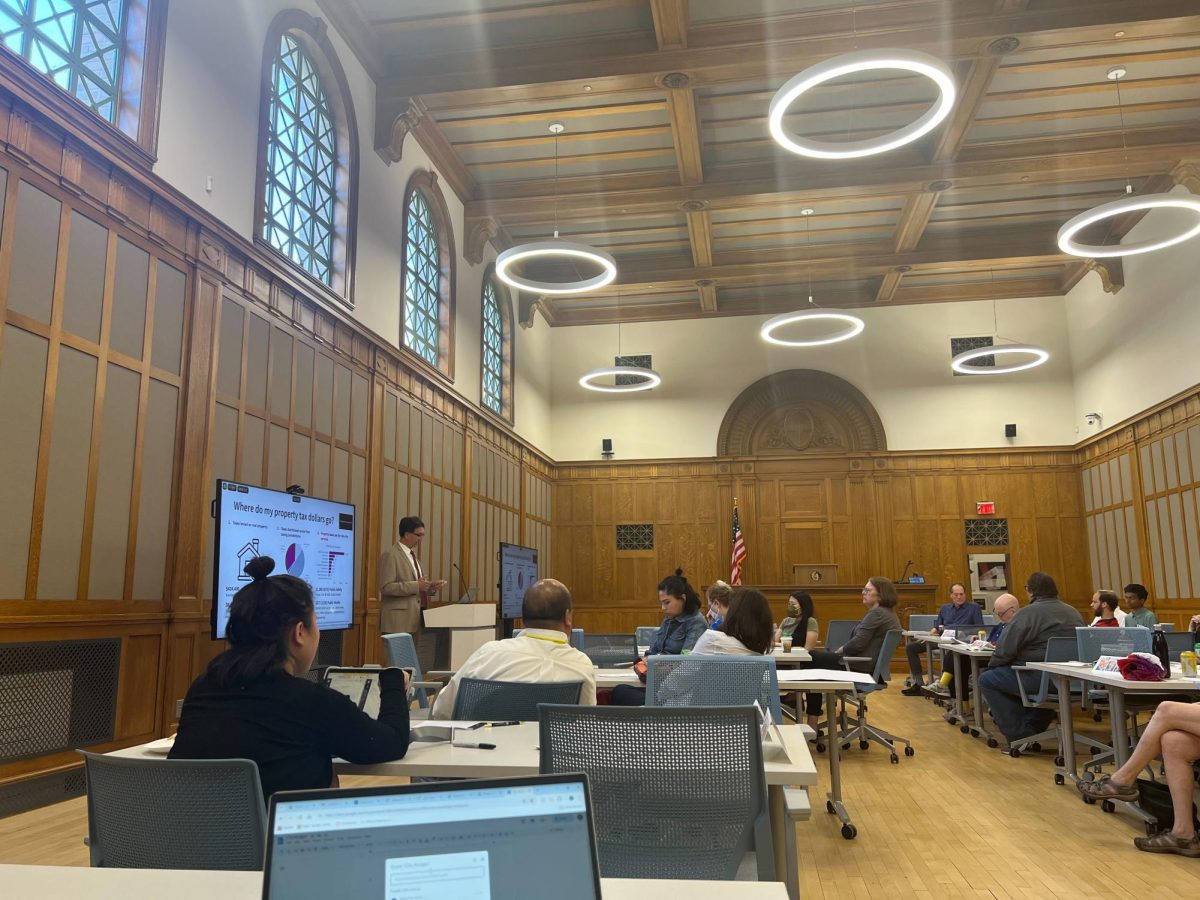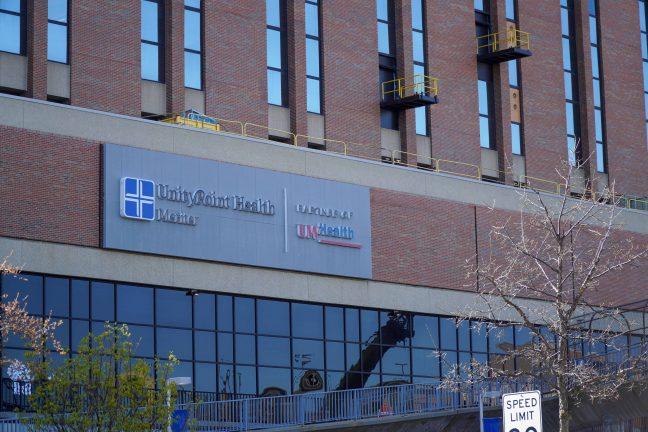After Madison Mayor Satya Rhodes-Conway announced the city’s largest solar energy project to date at a press conference last year, she recently “flipped the switch” at Madison Metro’s Bus Garage to launch the 119 kilowatt system.
The project was installed by GreenPower, a program housed within the city’s Engineering Division where people with little to no electrical experience obtain basic electrical theory and safety training, City of Madison Engineering Division Public Information Officer Hannah Mohelnitzky said.
The recently installed system will produce 139,000 kilowatt hours over the course of the year, Moheltnitzky said during the press conference. She noted that it is the thirteenth solar installation designed and installed by Engineering’s GreenPower program, which brings the city’s total to 743 kilowatt hours.
“All of our projects are designed to offset the electricity used in our public buildings,” Mohelnitzky said. “The solar panels, or array, are installed to absorb energy from the sun which is converted to usable building power.”
According to Mohelnitzky, the first install on the Madison Metro Bus Barn will produce 6% of the total electricity used, and the next phase will triple that output. The system is designed to reduce electrical demand during the day when air conditioning use is highest, she said.
According to Mohelnitzky, renewable energy is a more cost-effective approach to operate electrical systems because it requires little maintenance once installed. Though the project was partially funded by the City of Madison, the cost was also aided by a Wisconsin program entitled Focus on Energy.
Focus on Energy assists partners with various renewable energy projects and provides financial incentives to customers when their projects meet the specific Focus on Energy criteria, Focus on Energy Advisor Joel Roltgen said. At the press conference where the project was launched, Roltgen presented the check which provided the financial incentive to the mayor.
Madison closer to reaching 100% renewable energy goal as program installs solar panels
“In this case, we simply provided the financial incentive — more than $33,000 — to lower the cost of the project and help get it off the ground,” Roltgen said.
Presently, there are 334 solar panels installed on the roof of the Metro Bus Garage with one inverter. This system is expected to offset 98 metric tons of carbon dioxide each year, and the project has generated 4.45 million watt hours since Dec. 13, 2019, Mohelnitzky said.
Aside from the cost efficiency of renewable energy, it also creates local jobs, Mohelnitzky said. In addition, solar energy panels provide a clean method of generating electricity without producing exhaust of waste.
“It’s critical as part of the city’s transitioning to clean energy sources,” Mohelnitzky said. “Installing solar panels on our own facilities will help us meet our 100% renewable energy and zero net carbon goal by 2030.”
According to Mohelnitzky, the city hopes to cut its carbon emissions by 55% with at least 25% of municipal operations’ electricity sourced by self-generated renewable energy by 2030.
Though the Metro solar energy project is the largest in Madison history, it’s not the first in the city’s effort to move toward renewable energy. The city’s Engineering Division has produced at least seven other projects, from solar hot water on fire installations to solar electric parking, according to the City of Madison’s website.
Leaders in campus sustainability weigh in on University efforts to combat climate change
On a national scale, transportation accounts for about a third of carbon emissions, City of Madison Director of Transportation Tomas Lynch said in the press conference. In the U.S., solar power offsets over 70 million tons of carbon dioxide each year, according to Solstice, an organization that promotes solar energy throughout the U.S.
“Transit emits about half the carbon emissions as a motor vehicle does, so Metro Transit is already helping to cut carbon emissions just through transporting people from jobs, to home and to services,” Lynch said at the conference.
Additionally, Rhodes-Conway expressed the environmental as well as fiscal importance of solar energy during the press conference. In that same vein, the mayor emphasized her desire for Madison to continue being a leader for solar energy throughout the country.
With the start of the new year, Madison will continue to utilize renewable energy in a move toward conservation, Mohelnitzky said. The city’s 2020 goal is one megawatt of solar installed on city facilities.
To accomplish this, GreenPower will install a 28 kilowatt system at the Madison Municipal Building and then install an additional 240 kilowatt system, Mohelnitzky said.
The city is also in the process of switching its fluorescent lights to dimmable light-emitting diode (LED) lights in several city buildings. According to Mohelnitzky, this change will save the city about one-half the cost of electricity.
“We’re [Metro Transit] proud to be part of this where we can further offset carbon emissions by actually capturing energy and using that instead of carbon fuels,” Lynch said at the conference.


















